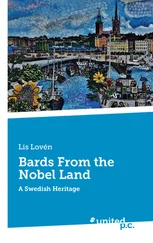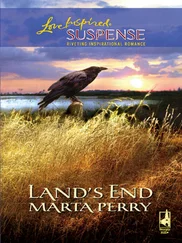Katharine Bates - From Gretna Green to Land's End - A Literary Journey in England.
Здесь есть возможность читать онлайн «Katharine Bates - From Gretna Green to Land's End - A Literary Journey in England.» — ознакомительный отрывок электронной книги совершенно бесплатно, а после прочтения отрывка купить полную версию. В некоторых случаях можно слушать аудио, скачать через торрент в формате fb2 и присутствует краткое содержание. Издательство: Иностранный паблик, Жанр: foreign_antique, foreign_prose, Путешествия и география, на английском языке. Описание произведения, (предисловие) а так же отзывы посетителей доступны на портале библиотеки ЛибКат.
- Название:From Gretna Green to Land's End: A Literary Journey in England.
- Автор:
- Издательство:Иностранный паблик
- Жанр:
- Год:неизвестен
- ISBN:нет данных
- Рейтинг книги:5 / 5. Голосов: 1
-
Избранное:Добавить в избранное
- Отзывы:
-
Ваша оценка:
- 100
- 1
- 2
- 3
- 4
- 5
From Gretna Green to Land's End: A Literary Journey in England.: краткое содержание, описание и аннотация
Предлагаем к чтению аннотацию, описание, краткое содержание или предисловие (зависит от того, что написал сам автор книги «From Gretna Green to Land's End: A Literary Journey in England.»). Если вы не нашли необходимую информацию о книге — напишите в комментариях, мы постараемся отыскать её.
From Gretna Green to Land's End: A Literary Journey in England. — читать онлайн ознакомительный отрывок
Ниже представлен текст книги, разбитый по страницам. Система сохранения места последней прочитанной страницы, позволяет с удобством читать онлайн бесплатно книгу «From Gretna Green to Land's End: A Literary Journey in England.», без необходимости каждый раз заново искать на чём Вы остановились. Поставьте закладку, и сможете в любой момент перейти на страницу, на которой закончили чтение.
Интервал:
Закладка:
"Not like a beggar is he come,
But enters as a looked-for guest,
Confiding in his ruddy breast."
We tossed crumbs to him all the more gaily for the fancy that his ancestors were among the pensioners of the abbey in the day of its supremacy. For the monks of Furness maintained an honourable reputation for hospitality from that mid-thirteenth-century beginning, when the Grey Brothers from Normandy first erected the grave, strong, simple walls of their Benedictine foundation in this deep and narrow vale, to the bitter end in 1537. Meanwhile they had early discarded the grey habit of the Benedictines for the white of the Cistercians, and their abbot had become "lord of the liberties of Furness," exercising an almost regal sway in his peninsula, with power of life and death, with armed forces at command, and with one of the richest incomes of the kingdom under his control. With wealth had come luxury. The buildings, which filled the whole breadth of the vale, had forgotten their Cistercian austerity in a profusion of ornament. Within "the strait enclosure," encompassing church and cloisters, the little syndicate of white-vested monks not only chanted and prayed, transcribed and illuminated manuscripts, taught the children of their tenants and entertained the stranger, but planned financial operations on a large scale. For outside this, the holy wall, was another, shutting in over threescore acres of fertile land which the lay brothers, far exceeding the clerical monks in number, kept well tilled. Here were mill, granary, bakehouse, malt-kiln, brewery, fish-pond; and beyond stretched all Furness, where the abbey raised its cattle, sheep and horses, made salt, smelted its iron, and gathered its rents.
Few of the monastic establishments had so much to lose, but Furness was surrendered to the commissioners of Henry VIII with seemingly no resistance. The Earl of Sussex reported to his greedy master that he found the Lord Abbot "of a very facile and ready mynde," while the prior, who had been a monk in that house for fifty years, was "decrepted and aged." Yet it may be noted that of the thirty-three monks whom Sussex found in possession, only thirty signed the deed of surrender. On the fate of the three history is silent, save for a brief entry to the effect that two were imprisoned in Lancaster Castle. There is no record of their liberation. The monks who made their submission were granted small pensions. The abbot received the rectory of Dalton, so near the desecrated abbey that he might have heard, to his torment, the crash of its falling towers. But there is room to hope that in those cruel dungeons of Lancaster two men died because they would not cringe. We do not know, and it was in vain we hunted through the moonlight for the ghost of that mysterious thirty-third, who, too, might have a gallant tale to tell.
The region abounds in points of interest. Romney, the painter, is buried in the churchyard of Dalton, his native place. Beautiful for situation is Conishead Priory, "the Paradise of Furness," once a house of the Black Canons and now a much-vaunted Hydropathic, for, in the stately language of the eighteenth-century antiquary, Thomas West, "Æsculapius is seldom invited to Furness, but Hygeia is more necessary than formerly."
Near the banks of the Duddon stands Broughton Tower, with its legend of how the manor, in possession of the family from time immemorial, was lost by Sir Thomas Broughton – and this was the way of it. In 1487 Lambert Simnel, claiming to be the son of the murdered Clarence, sailed over from Ireland, where he had been crowned by the sister of Richard III, to dispute the new throne of Henry VII. Among his supporters were the Earl of Lincoln, Lord Lovel of Oxfordshire, and Lord Geraldine with an Irish force; but it was the general of his two thousand Burgundian mercenaries, "bold Martin Swart," who is credited with having given name to Swarthmoor, where the invaders encamped. Sir Thomas joined them with a small body of retainers and, in the crushing defeat that followed, was probably left dead upon the field. But legend says that two of the English leaders escaped, – Lord Lovel to his own house in Oxfordshire, where he hid in a secret chamber and perished there of hunger, and Sir Thomas to his faithful tenantry, who for years concealed him in their huts and sheep-folds, and when he died, white-haired, wrapped him in his own conquered banner, and gave him a burial worthy of his race.
But our associations with Swarthmoor were of peace and not of war. Our pilgrimage thither was made for the sake of Mistress Fell of Swarthmoor Hall and of George Fox, her second husband, who established hard by what is said to be the first meeting-house of Friends in England. Quitting the train at Lindal, a few miles above the abbey, we found ourselves in the rich iron country, "the Peru of Furness." It must be the reddest land this side of sunset. Even the turnips and potatoes, we were told, come red out of the ground. I know that we tramped amazedly on, over a red road, past red trees and buildings, with a red stream running below, and the uncanniest red men, red from cap to shoe, rising like Satan's own from out the earth to tramp along beside us. The road was deeply hedged, airless and viewless, and we were glad when we had left three miles of it behind, though the village of Swarthmoor, at which we had then arrived, proved to be one of those incredibly squalid English villages that make the heart sick. Between wide expanses of sweet green pasture, all carefully walled in, with strict warnings against trespass, ran two or three long, parallel stone streets, swarming with children and filthy beyond excuse. The lambs had space and cleanliness about them, soft turf to lie upon, pure air to breathe, but the human babies crawled and tumbled on that shamefully dirty pavement, along which a reeking beer wagon was noisily jolting from "public" to "public." Farther down our chosen street, which soon slipped into a lane, there were tidier homes and more sanitary conditions. Yet even Swarthmoor Hall, the fine old Tudor mansion which rose across the fields beyond, had a somewhat uninviting aspect. There were broken panes in the windows, and the cows had made the dooryards too much their own. The present proprietors, who, we were assured, value the old place highly, and had refused repeated offers for it from the Society of Friends, rent it to a farmer. The housekeeper, not without a little grumbling, admitted us, and showed us about the spacious rooms with their dark oak panelling, their richly carven mantels, their windows that look seaward over Morecambe Bay and inland to the Coniston mountains. The hall which Judge Fell – that wise and liberal man, tolerant beyond his time – allowed the Friends to use for their weekly meetings, is a room of goodly proportions, with flagged floor and timbered roof. In the dining-room window stands a simple deal desk once belonging to George Fox, but that upper door through which he used to preach to the throng in orchard and meadow is now walled up. As we, departing, looked back at the house, large, plain, three-storied, covered with grey stucco, we noted how right up on the chimney, in the alien fellowship of the chimney-pots, flourished a goodly green yew, sown by passing wind or bird. The housekeeper, who had waxed so gracious that she accompanied us for a few steps on our way, said she had lived in Swarthmoor thirty-four years and had always seen the yew looking much as it did now, but that an old man of the neighbourhood remembered it in his boyhood as only finger-long. It had never, so far as she could tell, been provided by mortal hand with earth or water, but grew by some inner grace, a housetop sign and signal.
Конец ознакомительного фрагмента.
Текст предоставлен ООО «ЛитРес».
Читать дальшеИнтервал:
Закладка:
Похожие книги на «From Gretna Green to Land's End: A Literary Journey in England.»
Представляем Вашему вниманию похожие книги на «From Gretna Green to Land's End: A Literary Journey in England.» списком для выбора. Мы отобрали схожую по названию и смыслу литературу в надежде предоставить читателям больше вариантов отыскать новые, интересные, ещё непрочитанные произведения.
Обсуждение, отзывы о книге «From Gretna Green to Land's End: A Literary Journey in England.» и просто собственные мнения читателей. Оставьте ваши комментарии, напишите, что Вы думаете о произведении, его смысле или главных героях. Укажите что конкретно понравилось, а что нет, и почему Вы так считаете.












